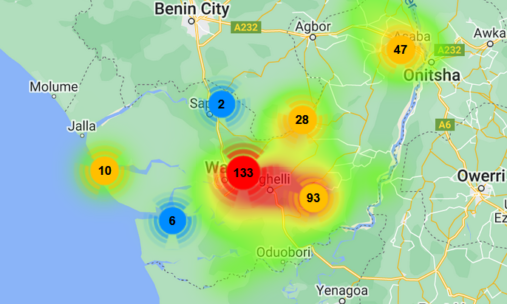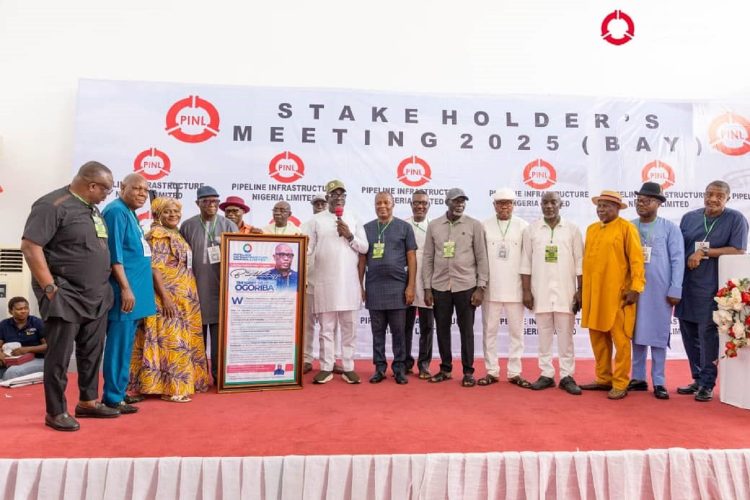
APPLY: Women for Energy Jobs Program
September 30, 2022
Forensic Audit: FG Orders NDDC to Publish Compendium of Completed Projects in N’ Delta
October 13, 2022
This weekly update spotlights communal conflict in the Niger Delta with a focus on rising tensions over leadership tussles and land disputes in Delta State. Clashes over land disputes and leadership tussles have been major causes of lethal violence and communal instability in Delta State. According to data (see map above), communal conflict caused over 200 fatalities in Delta State between January 2019 and June 2022. Recent incidents indicate rising communal tensions over escalation of land disputes and leadership tussles in the State. In August 2022, for instance, a youth leader was reportedly shot dead and three others wounded during a clash over a leadership tussle in Ufuoma community, Ughelli North LGA. In September, a passenger was reportedly shot dead and a community leader seriously injured during a clash between two rival groups over a leadership tussle in Igbide community, Isoko South LGA. Recently, on September 16, 2022, a middle-aged man was reportedly killed during renewed clashes over a boundary dispute between Aladja and Ogbe-Ijoh communities in Udu and Warri South-West LGAs respectively.
WHY IT MATTERS
The resurgence of clashes over leadership tussles, land and boundary disputes could intensify communal tensions and hostilities in ways that could trigger a cycle of reprisal violence in the State. Communal hostilities could negatively affect the dynamics of conflict and insecurity in the State. This could bring about far-reaching social, political and economic consequences at the local, state and regional levels.
Social: Recurrent clashes over land disputes and leadership tussles could have devastating impact on social relations and communal stability in the State. It could intensify ethno-communal hostilities which could result in killings, plundering and internal displacement. Prolonged land disputes and leadership tussles could encourage the creation of communal militias and proliferation of arms, which could make the drivers of the conflict more complicated and intractable.
Economic: Prolonged communal conflicts over land disputes could have devastating impact on the economy, especially considering that land is the mainstay of the local agro-based economy. Disputes over land ownership could discourage farming by limiting access to land. This could cause food insecurity by disrupting agricultural livelihoods and agro-allied businesses. This could also deepen rural poverty by reducing agricultural productivity and household income in the State.
Political: Communal conflict over land disputes and leadership tussles could destabilize local politics and governance in the State, especially considering that land is not only an economic asset, but also the basis of communal identity, social legitimacy and political representation.
Download report below









